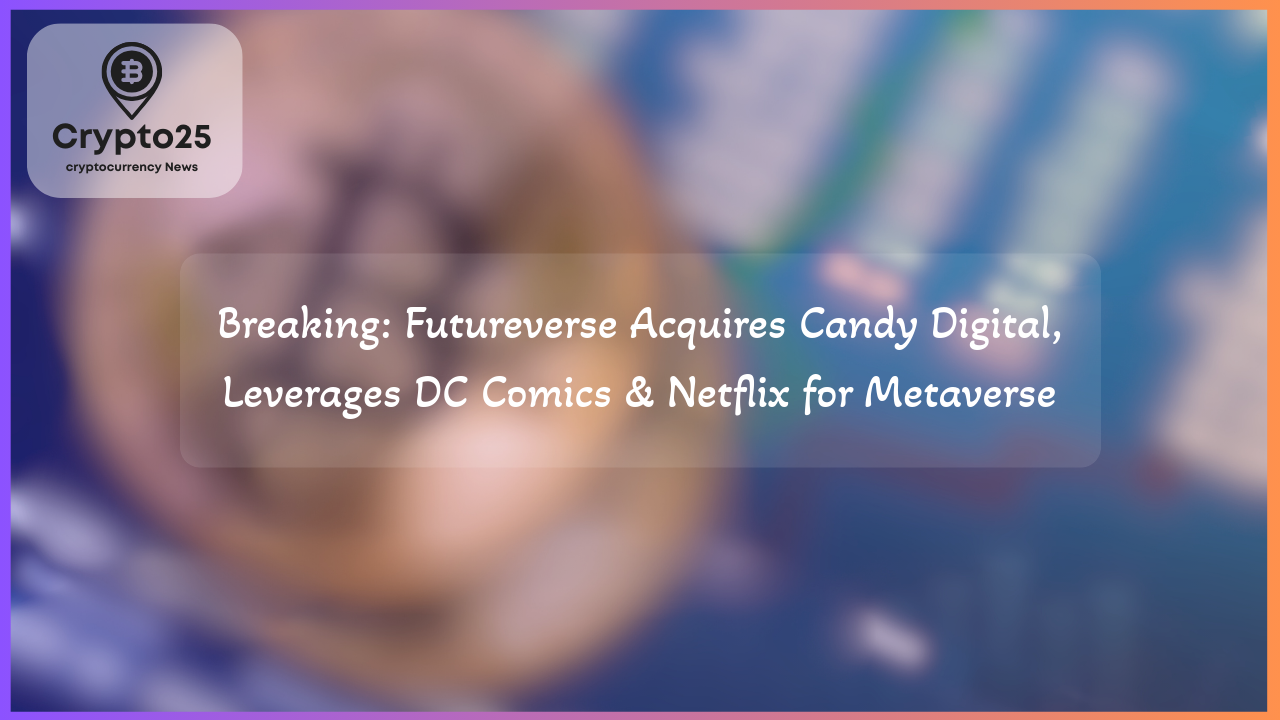
In a major step forward for the intersection of blockchain technology, digital collectibles, and the evolving metaverse space, Futureverse has officially acquired Candy Digital. This acquisition is poised to reshape the landscape of digital assets by combining Futureverse’s leading AI and metaverse tools with Candy Digital’s massive portfolio of licensed intellectual property and collectibles.
### Futureverse Acquires Candy Digital: What This Means for the Metaverse Landscape
Futureverse, a company at the forefront of AI innovation and metaverse development, has strengthened its position in the digital collectibles market by acquiring Candy Digital. Candy Digital, known for its collaborations with renowned brands such as Major League Baseball (MLB), DC Comics, and Netflix, is deeply entrenched in the digital collectibles ecosystem with a portfolio exceeding 4 million assets and a user base of 1.5 million accounts. This acquisition lays the foundation for Futureverse to further align digital experiences with real-world branding.
The merger presents unique opportunities to integrate immersive technology into global entertainment and sports industries. Aaron McDonald, co-founder and CEO of Futureverse, highlighted in a statement that the combination “bridges the gap between virtual assets and real-world engagement.” With patented technology in AI and blockchain, Futureverse aims to heighten brand loyalty and consumer experiences for blue-chip companies.
### How Candy Digital Fits into Futureverse’s Metaverse Vision
Candy Digital already occupies a strong foothold in the NFT community. Its rich portfolio of partnerships makes it a coveted player in the blockchain world, and Futureverse plans to fully integrate its technology into its foundational blockchain, The Root Network. By doing so, the company hopes to create a secure infrastructure for intellectual property protection, ensuring that brands can safely operate in digital ecosystems without risking misuse of their assets.
Described as an “open metaverse” builder, Futureverse has captured global attention by creating layer-1 blockchain technology that is interoperable, developer-friendly, and ideal for generating immersive, personalized digital experiences. Coupled with Candy’s brand partnerships, the integration promises to expand the range of digital collectibles and redefine user interactions in the NFT space.
| Title | Details |
|---|---|
| Futureverse Valuation | $1 Billion (2023) |
| Digital Collectibles in Candy’s Portfolio | Over 4 Million |
| Target Blockchain | The Root Network |
By merging Candy Digital’s intellectual property with The Root Network’s layer-1 blockchain infrastructure, Futureverse aims to tailor these assets to adapt seamlessly in both digital and physical spaces. The primary focus is to revolutionize how fans interact with their favorite brands across streaming services, sports, and entertainment sectors.
### The Future of Digital Collectibles Amid Growing Metaverse Skepticism
While the metaverse holds promising potential, skepticism lingers in the broader crypto market as NFTs and digital collectibles have seen a slowdown in momentum. The declining interest in NFT trading, accompanied by big players like tech firms and marketplaces shifting focus to generative AI, has prompted questions about the long-term sustainability of projects like those spearheaded by Futureverse. However, the company appears undeterred, continuing strong through calculated moves like its Candy Digital acquisition.
Over the years, Futureverse has forged partnerships with high-profile names, including FIFA, Warner Bros., and Reebok. Its strategic approach of combining blockchain with generative AI tools could give it a competitive advantage during the NFT market’s recovery phase. Additionally, Candy Digital’s roster of investors—Galaxy Digital, Microsoft, and ConsenSys Mesh—enhances Futureverse’s access to resources for expanding its technological capabilities and delivering on its vision.
The company’s leadership insists the acquisition is a “natural move” toward innovation and sustainability, believing the proprietary technologies they bring to the table will provide unparalleled engagement for brands and users alike. However, the deal’s financial details remain undisclosed, leaving stakeholders curious about the strategic terms behind such a significant consolidation within the NFT and metaverse sectors.
In a transitional period where the blockchain community is navigating challenges posed by the global market downturn, Futureverse’s focus on intellectual property and user engagement signifies its long-term commitment to scalability and innovation. As projects like these seek to reposition NFTs as central to entertainment and fandom, digital collectibles may yet stage a comeback.
With this acquisition, Futureverse has established itself as a leader in connecting the metaverse to consumer brands, setting the stage for a new era in virtual engagement. Whether these moves will succeed in reviving NFT interest remains to be seen, but one thing is certain: Futureverse is determined to shape the future of the digital collectibles market.
